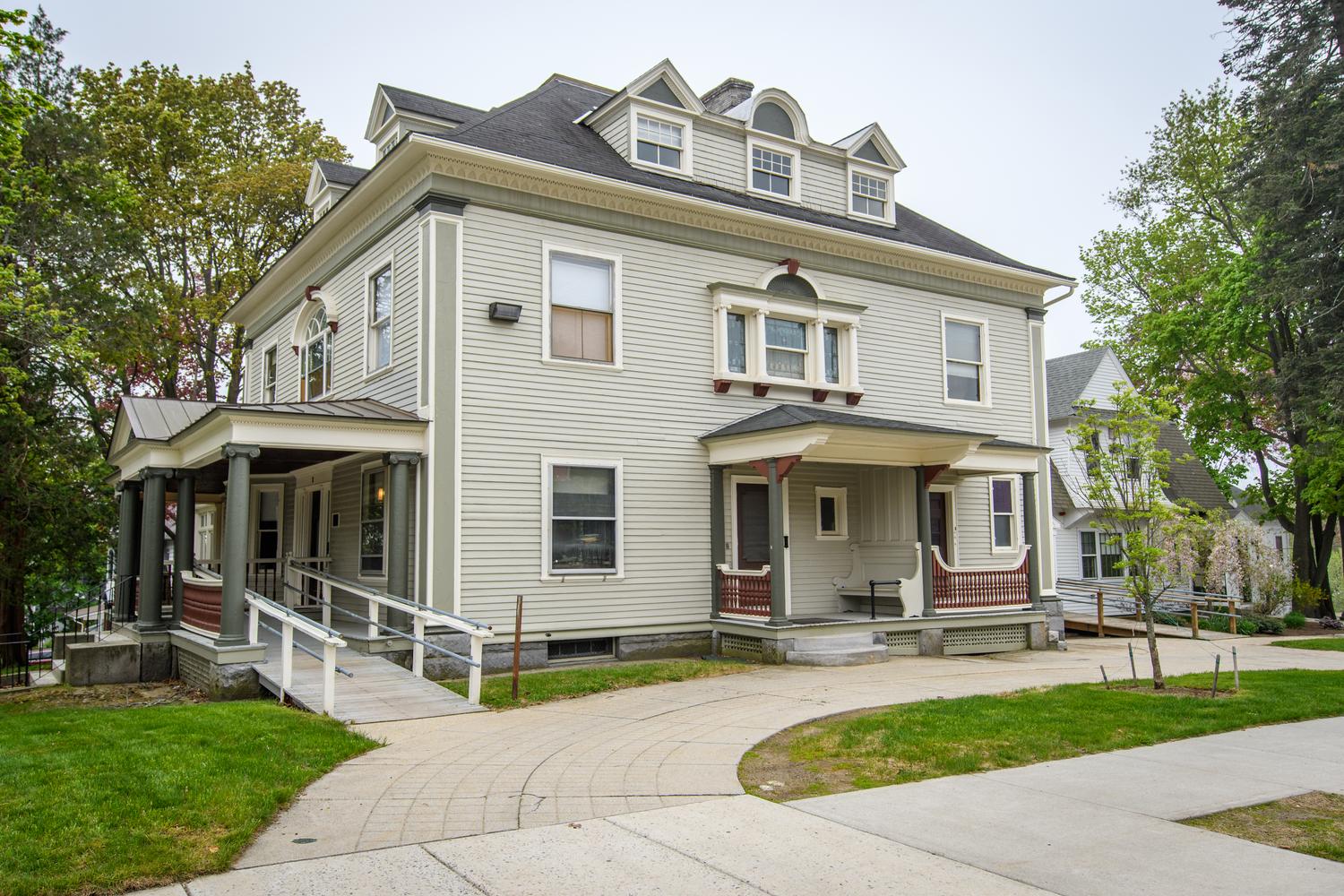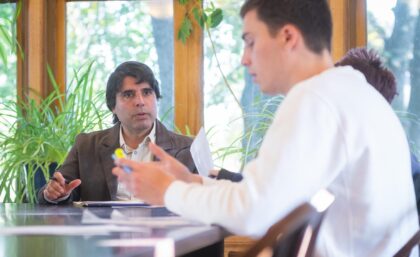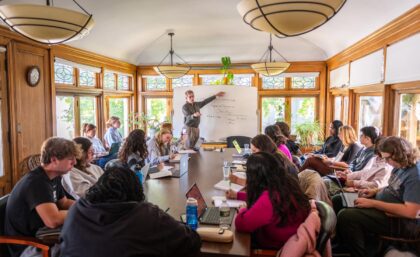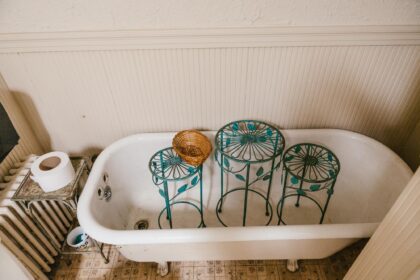‘A lot of possibility is encoded here’

One in an occasional series exploring the history and architecture of Clark’s buildings.

“Beck House is emblematic of the kind of community and small-group interaction that is a hallmark of Clark.”
Ravi Sharma, professor and chair of the Philosophy Department, is describing the department’s home at the corner of Woodland and Loudon streets, where Clark students learn about business ethics, Kantian philosophy, and metaphysics, and continue to unravel it all in after-hours discussions with professors.
According to Clark Archives and Special Collections, Beck House has welcomed students since 1958, when it was originally leased by the University (Clark purchased the building in 1988). The house is named after Robert N. Beck ’47, a professor of philosophy at Clark from 1948 to 1980. The Colonial Revival-style house features a series of long hallways, a sunroom, and a wide array of plants, carefully tended by student office assistants.
Two attic windows and a sheltered porch seem to almost give the house a face to match its long history. From the bench on the first-floor landing, one can observe the art-deco style stained glass, resplendent in shades of pink, pale blue, and light green. The wide bannisters curve around the landing delicately, revealing intricate hand-carved fluting. The stairs are well worn from more than a century of footprints, and creak softly as professors and students traverse them.
“The house gives identity to the program. Without the house, we would just be another wing of a building.”
– Walter Wright, professor emeritus of philosophy
Xavier Zinkevich ’25, a philosophy major and Worcester resident, feels close to the house, as both the hub of his department and a part of his city.
“I love being able to see how thinking has changed over time,” Zinkevich says of studying philosophy. “It gives such an interesting historical perspective. I also love how the department is this common space with after-hours coffee meetings to talk about philosophy and experiences.”
The house holds a special significance to him as well. “I’m honestly surprised that we have buildings like this in Worcester,” Zinkevich says. “You don’t often see houses like this that so well preserved. I’m happy that it’s being used for university purposes rather than just as a residential home; I think that it should be open to more people who want to see this kind of beautiful architecture.”
“There are a lot of really interesting features to the house,” Sharma says. “For instance, if you look at the flooring in some of the offices, it’s this inlaid wood pattern, all very elaborately done. Clearly, a lot of care was put into the construction and refurbishment of the house.” He describes the Beck House as having “more nooks and corners than you could ever imagine.”
The beauty and intimacy of the house make it inviting, he says, and that sense of invitation is what makes it so special.
“It’s a great common space for after-hours coffee meetups where people can go and talk about philosophy or their experiences with the department,” says Zinkevich, who is in his third year of taking classes in Beck House. “But I don’t think it’s really the house itself that’s most important, it’s the people who are in the house. I feel like part of a community.”

According to Clark Archives, the Beck House dates back to Frank Heath, a state senator, merchant, and the treasurer of several local associations, who built the home in 1904, and lived in it with his wife Sarah until his death around 1914.
The Beck House property is part of the Woodland Historical District, which also includes Anderson House, home to the English Department, and Harrington House, where Clark University presidents have resided since the late 1990s.
Inside Beck House, Robert N. Beck created the philosophy journal, Idealistic Studies, which gained widespread recognition beyond Clark. And it’s where generations of professors and students have wrestled with the essential questions surrounding human existence, thought, and meaning.
“The house gives identity to the program,” notes Walter Wright, professor emeritus of philosophy. “Without the house, we would just be another wing of a building. There’s something about it that gives us independence, something about being a little separate from the rest of the rest of the campus, about being a satellite.”
Sharma notes that teaching in the Beck House seminar room has distinct advantages, including the warm natural light and a setting that is “conducive to group discussion and to breaking down some of the hierarchies that traditional classroom design tends to enforce.”
“The fact that faculty work in Beck House has allowed for much greater interaction with students,” Sharma says. “I think that this is a really cool, underappreciated space. A lot of possibility is encoded here.”



